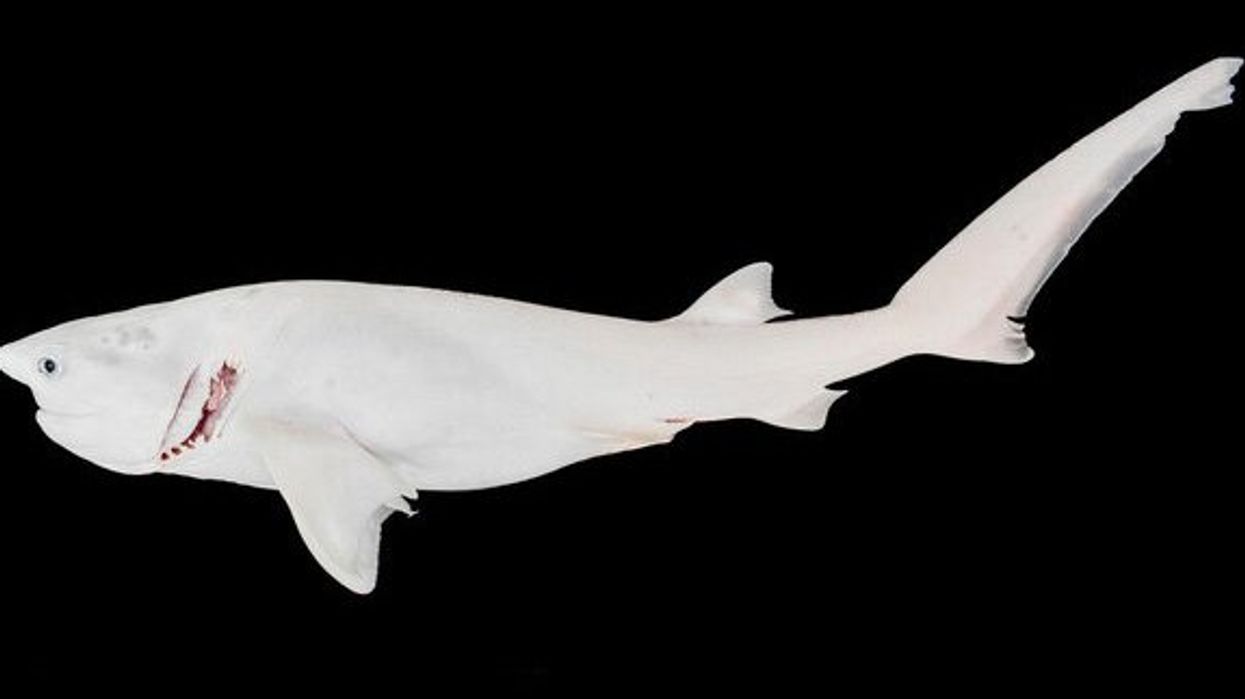Lee Bullen
Oct 26, 2023

Jam Press
Scientists have discovered a ghost-white shark with a rare condition.
The predator was accidentally hooked by fishermen dedicated to catching sole.
They were working from the coastal area of Los Chimus in Peru and informed authorities of the find.
At the time of its capture, the shark had injuries to its gill slits as a result of being caught up in the net last month.
The marine animal was transferred to the Peruvian Institute of the Sea (IMARPE) in Chimbote to undergo tests.
Scientists discovered that the shark had leucism, which causes partial loss of pigmentation.
The condition differs to albinism, which is a complete lack of melanin - a substance in the body that produces hair, eye and skin pigmentation.
Albinos often have pink or red eyes but while leucism often makes an animal’s skin white, it does not affect their eye colour.
IMARPE said this is the first known case of a shark in Peruvian waters having this condition.
The fish was a young female that measured 89cm in length.
Sexual maturity in females takes place when they are around 220cm in length.
The predatory species sits high on the trophic food chain and mostly feeds on other sharks, rays, cetaceans and sea lions.
Broadnose sevengill sharks are known to hunt in packs to bring down large prey.
They are recognisable by their seven gill slits as most shark species have five.
Sign up for our free Indy100 weekly newsletter
How to join the indy100's free WhatsApp channel
Have your say in our news democracy. Click the upvote icon at the top of the page to help raise this article through the indy100 rankings
Top 100
The Conversation (0)













